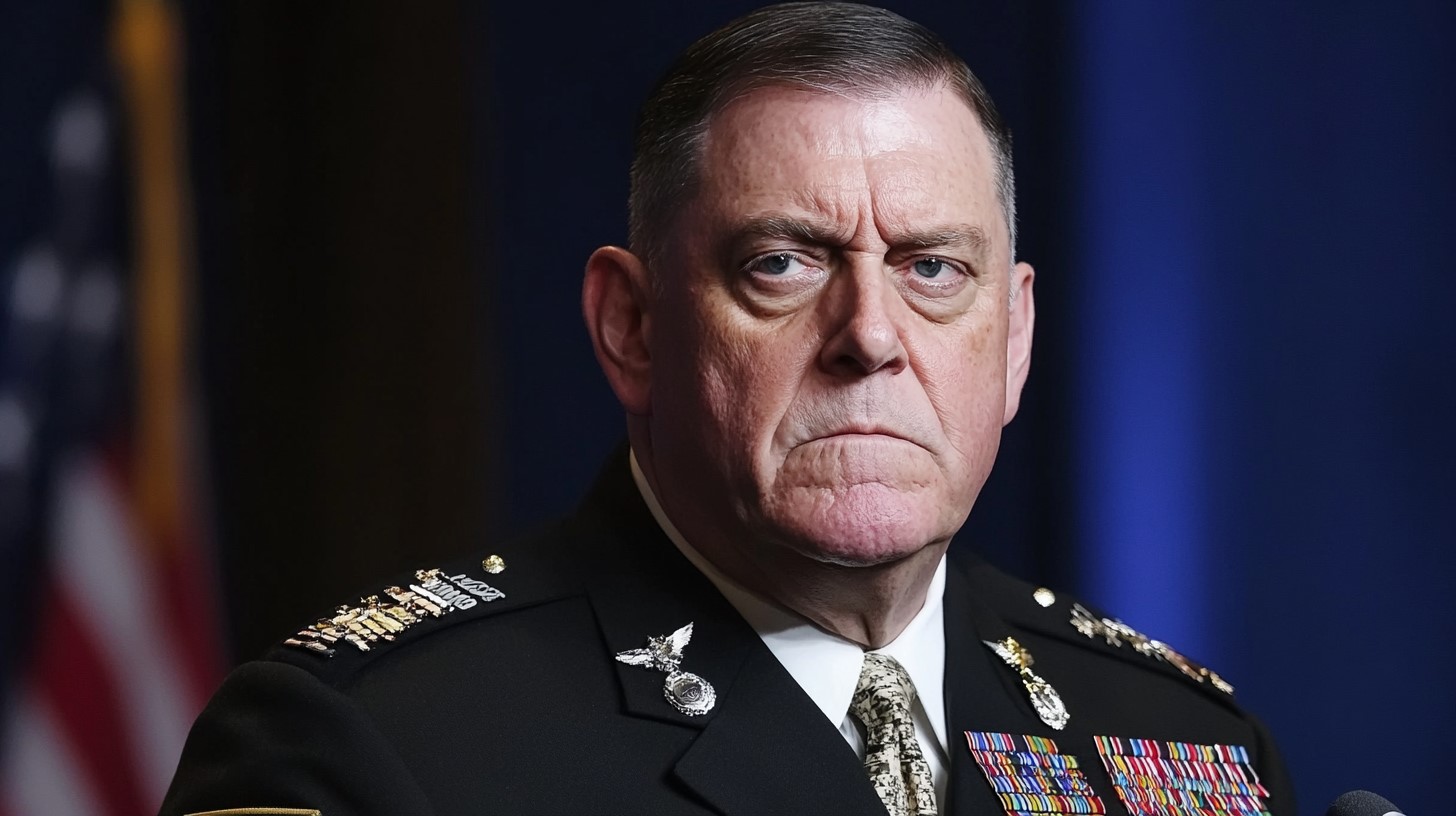
In a rare and explosive rebuke, retired General Mark Milley, former Chairman of the Joint Chiefs of Staff under President Donald Trump, has expressed deep concern about Trump’s leadership and his impact on U.S. democracy.
Milley’s comments, describing Trump as “fascist to the core” and “the most dangerous person to this country,” have reverberated across political and military circles. These statements, coming from a man who worked closely with Trump during his presidency, add significant weight to growing concerns about Trump’s influence and his possible return to power.

The Source of Milley’s Concerns: From Close Proximity to Clear Criticism
Milley, who was appointed by Trump in 2019, initially tried to work within the administration, but his perception of Trump changed dramatically over time. In conversations with Bob Woodward, the celebrated journalist and author, Milley reflected on his evolving concerns about Trump. According to Woodward’s upcoming book, War, Milley’s initial suspicions about Trump’s mental state and suitability for office turned into firm conclusions after the January 6, 2021, Capitol insurrection.
Milley reportedly told Woodward in a private meeting in 2023, “He is the most dangerous person ever… He is now the most dangerous person to this country.” He went further, describing Trump as “a fascist to the core,” a damning assessment from a senior military official.
January 6th and Its Aftermath: The Turning Point
The attack on the Capitol on January 6, 2021, marked a significant turning point for Milley’s relationship with Trump. Milley, who witnessed firsthand how Trump’s rhetoric mobilized his supporters, including far-right extremists and militia groups, was deeply troubled by the former president’s actions. In the aftermath, Milley sought a meeting with then-Attorney General Merrick Garland to discuss the rise of domestic violent extremism and the threat posed by far-right militia movements.
Woodward’s book reveals that Milley took unprecedented steps in the wake of the Capitol riot to safeguard the country, reportedly urging Garland to take a more aggressive stance in investigating and combating these extremist threats(. Milley’s sense of duty and alarm, as well as his close proximity to the former president, make his warnings all the more sobering.
A Veiled Warning at Milley’s Retirement Ceremony
Milley’s concerns about Trump’s leadership did not stay confined to private conversations. During his September 2023 retirement ceremony, Milley made a pointed remark that many saw as a thinly veiled critique of Trump. Without mentioning the former president by name, Milley highlighted the military’s unwavering loyalty to the Constitution rather than to any individual leader.
“We don’t take an oath to a country, we don’t take an oath to a tribe, we don’t take an oath to a religion. We don’t take an oath to a king, or a queen, or a tyrant or a dictator,” Milley said during his farewell speech. He then added, “And we don’t take an oath to a wannabe dictator!”—a remark widely interpreted as a direct jab at Trump’s authoritarian tendencies.
Trump’s Response and Public Reaction
Unsurprisingly, Trump has not taken Milley’s critique lightly. The former president has lashed out at Milley on numerous occasions, often accusing him of being part of the so-called “deep state” and undermining his administration. Trump’s fiery rhetoric toward Milley is emblematic of his broader disdain for military leaders who have challenged him.
Despite Trump’s counterattacks, Milley’s words have resonated with many who fear that a second Trump term could further destabilize American democracy. Milley’s stark assessment, coupled with his unique insight into Trump’s character, has added fuel to the ongoing debate about the future of the Republican Party and the potential dangers of Trumpism.
A Growing Chorus of Concern
Milley is not alone in his alarm. Several former military and intelligence officials have expressed similar concerns about Trump’s authoritarian impulses and the potential consequences of his return to power. What sets Milley’s warnings apart, however, is his position at the highest levels of military leadership during Trump’s presidency.
By calling Trump a “fascist to the core,” Milley has underscored the existential threat he believes Trump poses to the nation. His comments reflect a growing sentiment among critics of Trump who view his actions as fundamentally at odds with democratic principles and the rule of law.
Conclusion: A Call to Defend Democracy
General Milley’s damning critique of Donald Trump is not merely the parting shot of a retiring military leader—it is a clarion call for Americans to be vigilant in defending their democracy. Milley’s words serve as a stark reminder that the stakes in the upcoming election go far beyond partisan politics; they are about the very nature of American governance.
As the 2024 election draws near, the question remains: Will Milley’s warnings be heeded, or will Trump’s authoritarian tendencies once again shape the course of American history? Only time will tell, but one thing is certain—Milley’s alarm is a warning that should not be taken lightly.
